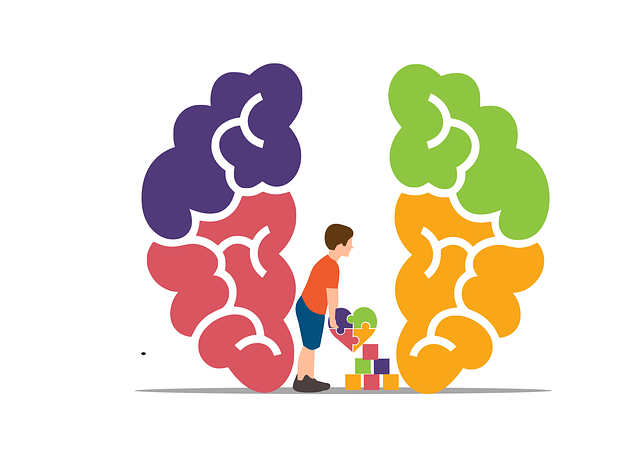Westminster Russian Speaking Therapy (WRST) provides a culturally sensitive crisis intervention approach tailored for Russian-speaking communities in London. By focusing on safe spaces, risk assessments, and stress management techniques, WRST ensures therapists can address the unique mental health needs of these individuals. Their method includes recognizing distress signals, de-escalation techniques, emotional intelligence communication, and evidence-based stabilization methods. Post-crisis care is emphasized through holistic support, mindfulness meditation, and self-esteem improvement, empowering residents to recover and rebuild together.
“In times of crisis, effective intervention can be a lifeline. This article explores comprehensive strategies for navigating critical situations, drawing on the unique perspective of the Westminster Russian Speaking Therapy Approach. We delve into cultural considerations, identifying distress signals, and powerful communication techniques for rapid assessment. Additionally, evidence-based stabilization methods and post-crisis care strategies are highlighted to foster resilience within communities. By integrating these practices, we aim to empower professionals and caregivers with valuable tools inspired by this innovative therapy model.”
- Understanding Crisis Intervention in Cultural Context: The Westminster Russian Speaking Therapy Approach
- Identifying Signs of Distress and Emergency Situations
- Effective Communication Strategies for Rapid Assessment
- Evidence-Based Techniques for Stabilization and Support
- Post-Crisis Care and Fostering Resilience within the Community
Understanding Crisis Intervention in Cultural Context: The Westminster Russian Speaking Therapy Approach

Crisis intervention is a complex process that requires cultural sensitivity and tailored approaches to effectively support individuals in distress. The Westminster Russian Speaking Therapy (WRST) Approach offers a unique perspective, especially relevant for communities with distinct cultural backgrounds. This method acknowledges the impact of cultural factors on mental health crises, ensuring therapists are equipped to navigate diverse needs. WRST focuses on creating a safe space where clients feel understood and accepted, fostering open communication.
The approach emphasizes the importance of a thorough risk assessment for mental health professionals, considering both individual and community-level stressors. By integrating stress management techniques and promoting mental health awareness, WRST aims to prevent and mitigate crises. This strategy not only benefits Russian-speaking individuals but also enriches the field of therapy by demonstrating the power of cultural adaptation in crisis intervention practices.
Identifying Signs of Distress and Emergency Situations

Recognizing signs of distress is a vital step in crisis intervention. At Westminster Russian Speaking Therapy, we emphasize understanding non-verbal cues, such as prolonged silence, avoidance of eye contact, or sudden changes in behavior, which may indicate an individual is experiencing emotional turmoil. Verbal clues like heightened irritability, repetitive questioning, or expressions of hopelessness are also red flags demanding attention. Our therapists are trained to recognize these subtleties, ensuring early intervention.
Emergency situations require immediate action. In such cases, mental health professionals must be equipped to assess and respond swiftly. The Mind Over Matter Principles guide our approach, focusing on de-escalation techniques to help individuals regain a sense of control. Effective crisis intervention involves not only addressing the present crisis but also considering the broader context through Mental Health Policy Analysis and Advocacy, ensuring long-term support and prevention strategies, such as designing inclusive Mental Health Education Programs.
Effective Communication Strategies for Rapid Assessment

In crisis intervention settings, effective communication is key to rapid assessment and appropriate support. At Westminster Russian Speaking Therapy, we understand that cultural sensitivity and emotional intelligence are paramount when engaging with individuals in distress. Our therapists employ active listening techniques, encouraging clients to verbalize their concerns and experiences freely. This not only facilitates a deeper understanding of the crisis but also builds trust, allowing for more honest and accurate assessments.
By integrating Emotional Well-being Promotion Techniques, we aim to create a safe space where clients feel heard and validated. Our approach involves teaching basic emotional intelligence skills, enabling individuals to recognize and manage their emotions effectively. Additionally, Mental Wellness Coaching Programs Development plays a crucial role in fostering resilience and providing practical tools for coping with future challenges. This holistic communication strategy ensures that crisis intervention is not just a temporary fix but empowers clients towards long-term mental wellness.
Evidence-Based Techniques for Stabilization and Support

In times of crisis, evidence-based techniques play a pivotal role in stabilization and support. Westminster Russian Speaking Therapy leverages research-backed methods to help individuals navigate turbulent situations effectively. One such technique is Mental Wellness Journaling Exercise Guidance, which encourages reflection and self-awareness through structured journaling. This process enables clients to identify triggers, track emotions, and develop coping strategies tailored to their unique experiences. By fostering a safe space for expression, journaling becomes a powerful tool for emotional regulation and personal growth.
Furthermore, Stress Management Workshops Organization offers comprehensive programs designed to enhance resilience and promote mental wellness. These workshops delve into various techniques such as mindfulness practices, relaxation exercises, and positive affirmation rituals. Participants learn practical strategies to manage stress, build confidence, and cultivate a sense of calm amidst challenges. The holistic approach adopted by these initiatives ensures that individuals not only survive crises but also emerge with enhanced tools for sustaining their well-being in the long term.
Post-Crisis Care and Fostering Resilience within the Community

After a crisis, providing ongoing support and fostering resilience within the community is essential to help individuals recover and rebuild their lives. This post-crisis care involves various strategies tailored to address the unique needs of those affected, especially in diverse communities like London’s Russian-speaking population, where cultural sensitivity and language accessibility are critical. Westminster Russian Speaking Therapy offers specialized services to ensure a holistic approach to recovery.
One effective method is incorporating practices such as Mindfulness Meditation, which can aid individuals in developing inner strength and cultivating a sense of calm during challenging times. Additionally, focusing on Self-Esteem Improvement through therapy sessions enables people to regain confidence and build resilience, empowering them to face future obstacles head-on. By fostering a supportive community environment and providing access to resources for emotional well-being, residents can find solace and strengthen their collective recovery.
The Westminster Russian Speaking Therapy approach offers a culturally sensitive framework for crisis intervention, emphasizing rapid assessment and evidence-based practices. By understanding cultural nuances and utilizing effective communication strategies, therapists can provide tailored support during distressing situations. This holistic guidance equips professionals to navigate complex scenarios, stabilize individuals, and build community resilience, ensuring long-lasting positive outcomes. Embracing these strategies not only benefits the affected individuals but also strengthens the overall mental health landscape, particularly within diverse communities.














